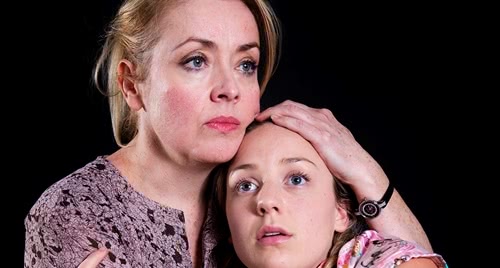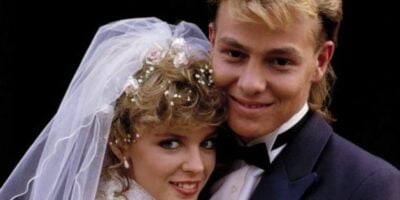Like all great art, Hilary Bell’sWolf Lullabyis a play that forces audiences to think and reflect. Set in a desolate Tasmanian country town, the plot revolves around the murder of a young child for which, quite disturbingly, the prime suspect is a nine-year-old girl. Inspired by real-life child murder cases such as those of James Bulger, Derrick Robie and Mary Bell, audience members will walk away questioning everything they thought they knew about themselves and the society that we live in. Director Emma Louise talks about the play, as well as its emotionally important themes.
“Wolf Lullaby follows the lives of four characters in the aftermath of a senseless murder of a child,” she explains. “It asks the audience to ask questions of themselves. It’s all too easy when these bad things happen, such as a child murdering a child in this instance, to blame it on something. Whether it be what they watch on TV or simply saying, ‘That child is just evil,’ we tend to avoid turning the mirror on ourselves and looking at what sort of role we play as a community in creating a world where this sort of stuff happens.”
So stark are the questions that the play poses, people will be forced to inwardly reflect on their own morality.
“Is there intrinsic evil in the world? Could we all be perpetrators? What’s to blame? What do we do when there is no answer? What would we do in this situation?” asks Louise. “It poses so many questions, without providing answers, because there are no easy answers. It really is left up to individuals to go away thinking. That’s what I really love about this play.”
A central question is why people are so unsettled by the idea of a child committing murder. Louise says, “In an ideal world children are perceived as innocent and so it makes people ask, ‘Why is an innocent child doing such a horrific act?’ It goes beyond what we’d like to comprehend.”
Although this is Louise’s directorial debut, it isn’t her first encounter with Wolf Lullaby. “I experienced the play 12 years ago at uni where I was fortunate enough to work on it. I loved it then, love it now.” Directing is a different matter, of course. “It has been a real learning curve, because when I first explored it I was playing a particular character and really looked at it from that one perspective. As a director, I’m now looking at it from all four angles. That’s another great thing about the play; despite everything, all four characters are really lovable in many ways, but then you hate them as well.”
Although the director has stayed true to the original script, she has added an interesting psychological dimension.
“What we’ve explored in this production is Jung psychology,” she explains. “He talks about the idea of ‘the shadow’, which is the unknown, dark side of our personalities. It’s whatever we deem evil, inferior or unacceptable that we deny in ourselves. That all becomes part of the shadow and we have to constantly keep that in check and balanced with our conscious ego in order to stay healthy. If you look at it that [way] we all have the shadow or a dark side, and I guess you have to ask what would happen if that did become unbalanced. In this case, it does, and the wolf is the embodiment of that.”
Wolf Lullabyis playing at theNew Theatre until Saturday September 13, tickets available online.


































